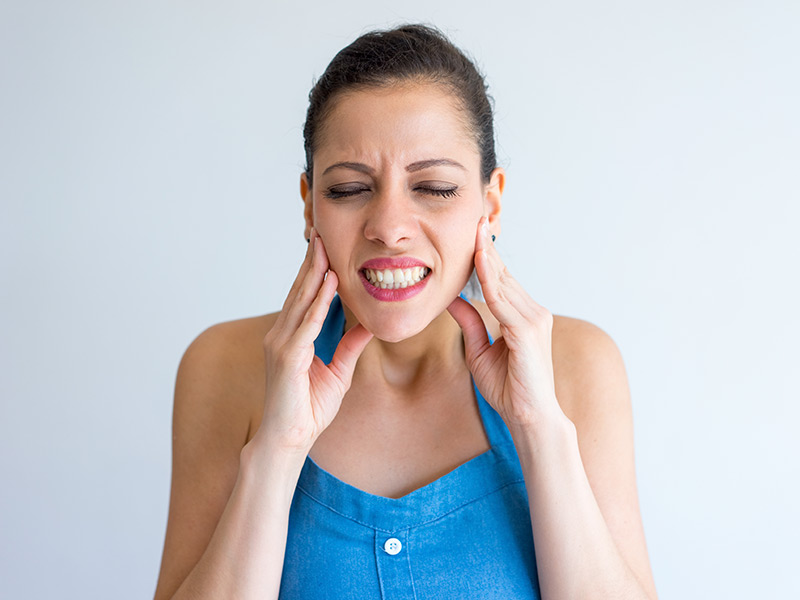In today’s article in Gross Dentistas we are going to deal with bruxism, we will talk about the symptoms so that you can detect it and go to your trusted dentist and find a solution to this problem.
What is bruxism?
You have probably already heard what bruxism is, but for those of you who don’t know what it is, you should know that it consists of unconsciously clenching your jaw and grinding your teeth, which causes them to wear down.
According to studies, this problem is suffered by approximately 70% of the population in Spain. It is a fact that can occur both during the day and at night, although it is at night when it is most frequent.
The person who suffers from bruxism does not realise it themselves, as it is usually other people who inform them, either because they have slept with them and have heard them grinding their teeth, or their dentist, after carrying out a check-up, has noticed that their teeth are somewhat worn.
How do I know if I have bruxism? Common symptoms and consequences
As mentioned above, there are people who realise that they have bruxism because someone else has told them about it, even if it is simply the fact that they grind their teeth. But there are many other symptoms that can indicate that we suffer from this problem.
Symptoms of bruxism and consequences
- Clenching or grinding of the teeth in such a way and with such force that it can wake up the person sleeping with us.
- The tooth enamel is worn away and it is possible to see the deeper layers of the teeth.
- The jaw muscles are somewhat stiffer and tired.
- Swelling or pain in the jaw area, neck or face.
Like any other problem that is not treated in time, there are also consequences, which are also symptoms of bruxism:
- The person has increased tooth sensitivity or pain throughout the mouth.
- Headache that usually starts in the temples.
- In some cases, sleep disturbance due to pain in the jaw.
What treatments and solutions are available for bruxism?
The possible treatments for bruxism are discussed below, and it is important that they are supervised by your trusted dentist as they, as experts in the field, will know which is the best option for your specific case.
- Occlusal or discharge splint: this is the treatment that is applied to the vast majority of cases, as the problem is not very advanced and mainly occurs at night. It consists of a prosthesis that adjusts to the person’s teeth, which should be fitted during sleeping hours and also at those times when the person knows that their teeth are exerting pressure, for example, in cases of high stress or concentration.
- Prosthetic rehabilitation: in those cases in which bruxism is advanced, there is great dental wear, what the experts recommend is to rehabilitate the teeth prosthetically.
Finally, from Gross Dentistas, dental clinic in Malaga, we want to mention that it is very important to take into account other aspects to try to avoid bruxism as far as possible, which are to reduce or eliminate stress and muscle tension, perform relaxation exercises, massage the muscular area of the jaw and sleep maintaining a correct posture.
If you currently have an emergency, or need your orthodontics checked, we invite you to contact us without obligation. Call us or write to us, we will respond to your request as soon as possible.
Ortodoncista especializada en el sistema de ortodoncia invisible, extensa trayectoria profesional y un gran número de pacientes satisfechos con los resultados obtenidos tras la finalización de su tratamiento.


